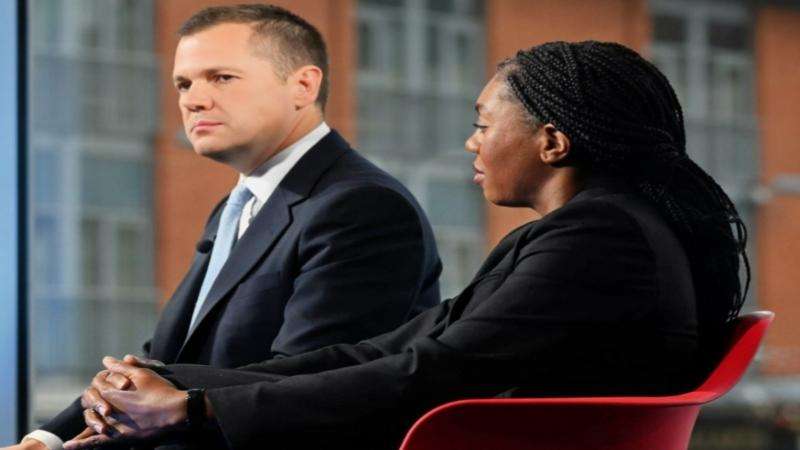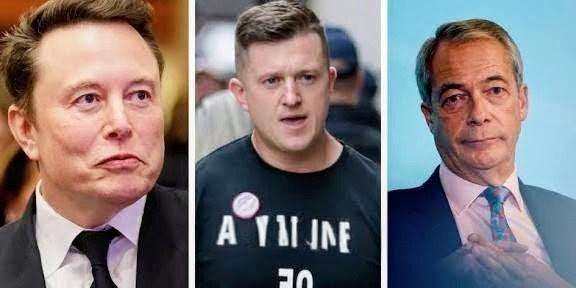While Elon Musk's backing of figures like Tommy Robinson might suggest a simple alignment with the UK's populist right, his relationship with the main party of that movement, Reform UK, is far more complex and fraught with tension. The tech billionaire initially expressed significant interest in the party, particularly its leader, Nigel Farage. There was even rampant speculation—fed by Farage himself—of a potential $100 million donation from Musk, a sum that would have dwarfed any previous political contribution in UK history. However, this "bromance" soured dramatically when Farage publicly distanced himself from Tommy Robinson. Musk, a vocal advocate for Robinson's release from prison, turned on Farage, calling for him to be replaced as leader. This episode revealed a key fault line: while Musk shares Reform UK's anti-establishment and "free speech" rhetoric, his loyalty is to the ideology itself, not to any single political figure or party. He sees them as vehicles to advance his agenda, and if they fail to fully embrace his chosen causes, he is quick to discard them.
ELON MUSK'S UK GAMBLE: WHY THE TECH TYCOON IS WADING INTO BRITAIN'S CULTURAL WAR- In a move that has sent shockwaves through the UK political landscape, billionaire Elon Musk has publicly backed far-right activist Tommy Robinson, delivering a fiery speech via video link at a massive London rally. The unprecedented intervention has raised a flurry of questions about Musk's motives, his relationship with Donald Trump, and why he has become one of the most polarizing figures in Britain.
What's Behind the Backing?
Musk's support for Robinson is not a simple endorsement but a calculated move rooted in his self-proclaimed crusade for "free speech" and his battle against what he calls the "woke mind virus." At the "Unite the Kingdom" rally, he echoed Robinson's anti-immigration rhetoric and railed against the UK government and the BBC. He told a crowd of over 100,000 people to "fight back or you die," a phrase that has been widely condemned as irresponsible and inflammatory. While there is no public evidence to suggest Musk is directly funding Robinson, his platform on X (formerly Twitter) provides an invaluable megaphone. This allows Robinson to reach a global audience, bypassing mainstream media and amplifying his message to millions. This support is a cornerstone of Musk's business model for X, where he has positioned the platform as a bastion of unfettered expression, even for those with controversial or fringe views.
The Fractured Alliance: Musk's Tumultuous Relationship with Reform UK
While Musk's backing of figures like Tommy Robinson might suggest a simple alignment with the UK's populist right, his relationship with the main party of that movement, Reform UK, is far more complex and fraught with tension. The tech billionaire initially expressed significant interest in the party, particularly its leader, Nigel Farage. There was even rampant speculation—fed by Farage himself—of a potential $100 million donation from Musk, a sum that would have dwarfed any previous political contribution in UK history. However, this "bromance" soured dramatically when Farage publicly distanced himself from Tommy Robinson. Musk, a vocal advocate for Robinson's release from prison, turned on Farage, calling for him to be replaced as leader. This episode revealed a key fault line: while Musk shares Reform UK's anti-establishment and "free speech" rhetoric, his loyalty is to the ideology itself, not to any single political figure or party. He sees them as vehicles to advance his agenda, and if they fail to fully embrace his chosen causes, he is quick to discard them.
The UK Political Arena: A New Frontier for Musk
Musk's interest in UK politics is not a sudden whim. His interventions have been a growing trend, previously seen in his criticism of the Online Safety Act and his commentary on historical child grooming gang cases. His actions align with a broader strategy to destabilize governments and regulations he perceives as a threat to his business interests. The UK's Online Safety Act, for example, could impose significant penalties on platforms like X for failing to remove harmful content, a direct challenge to Musk's "free speech" absolutism. By aligning with populist and far-right figures, Musk gains influence and a powerful, dedicated audience. He taps into a sense of public disquiet and grievance, positioning himself as a champion of the common person against a perceived out-of-touch establishment. This narrative also serves his business interests by creating a political environment more favorable to his companies, like his satellite internet service, Starlink, which faces regulatory hurdles in various countries.
A Chilling Relationship with Trump
While Musk and Donald Trump once shared a "rapid and intense bromance," their relationship has recently soured. This is a significant shift, especially considering Musk was a prominent backer of Trump's 2024 campaign. The rift reportedly began after Musk left the second Trump administration, with the two men trading barbs on social media. Trump has even gone so far as to suggest Musk "went back to where he came from." This cold war between two of the world's most powerful men is a fascinating development. It suggests that while they share some common ground—a disdain for traditional media, a belief in "free speech," and a populist appeal—their egos and conflicting visions for the future may have become too great to reconcile.
Why the British Public Has Turned Against Musk-Musk's interventions have not been well-received by the British public. A recent YouGov poll revealed that a large majority of Britons have a negative view of him, with only a small minority holding a favorable opinion. His popularity has plummeted in the wake of his political commentary and his handling of controversial issues on X. This public sentiment has a tangible impact on his businesses. Tesla sales in the UK have slumped, with some reports attributing the decline directly to the "Musk backlash." The competition in the electric vehicle market is fiercer than ever, and for many British consumers, the brand's association with Musk's polarizing politics has become a deal-breaker.
What's Next for Elon Musk? Musk's grand plan appears to be a multi-faceted strategy to reshape not just technology and business but also global politics. His ventures like SpaceX, Neuralink, and xAI are not just engineering projects; they are deliberate experiments in expanding human existence and influence. While his Mars ambitions and brain-computer interfaces are often the headline-grabbers, his political activism is a key part of the puzzle. By using his social media platform to influence public discourse and his vast wealth to navigate political landscapes, Musk is positioning himself as a new kind of global power broker. His ultimate goal seems to be to create a world where his companies and his ideology can thrive, unimpeded by government regulation or public opinion he finds disagreeable.
Meta Description:
Investigate why Elon Musk is backing Tommy Robinson, his fractured relationship with Reform UK and Nigel Farage, his strained relationship with Donald Trump, and how his controversial actions are affecting Tesla's popularity in the UK.
Long-Tail Meta Keywords:
Elon Musk Tommy Robinson, Elon Musk UK politics, Elon Musk Reform UK, Elon Musk Nigel Farage, Elon Musk Donald Trump feud, Elon Musk funding Tommy Robinson, why British people dislike Elon Musk, Tesla sales UK, Musk's master plan, Elon Musk free speech, Unite the Kingdom rally, Elon Musk political views, X platform controversy, Online Safety Act UK.

_8.jpg)
_5.jpg)
_8.jpg)




.svg)



